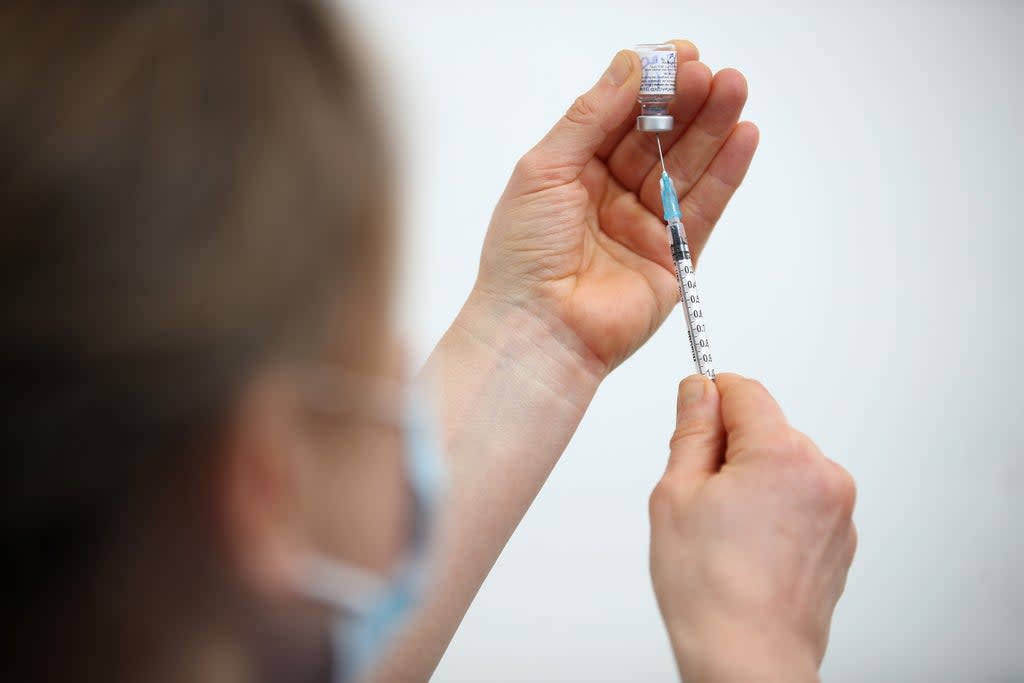UK orders 35m more Covid vaccine doses to ‘future proof’ jab rollout

The government has signed a deal to buy 35million more doses of the Pfizer jab in a bid to "future-proof" the vaccine rollout.
Health Secretary Sajid Javid said the extra doses were part of “robust preparations” to ensure the country’s safety against Covid-19 “for years to come”.
No official decision has been given on a potential rollout of third doses by the UK government.
However, plans are in place to enable a booster programme to begin in early September alongside the flu jab if advised.
Mr Javid said he is “confident” a booster campaign can start next month.
“The UK’s phenomenal vaccination programme is providing tens of millions of people with protection from Covid-19, saving 95,200 lives and preventing 82,100 hospitalisations in the over 65s in England alone,” said Mr Javid.
“While we continue to build this wall of defence from Covid-19, it’s also vital we do everything we can to protect the country for the future too, whether that’s from the virus as we know it or new variants.
“I am pleased we’ve reached this agreement with Pfizer for more doses as part of our robust preparations to future-proof our vaccine programme, ensuring we have plans in place to keep the nation safe for years to come.”
The head of the World Health Organisation (WHO) has said third jabs should be delayed to help raise vaccination rates globally.
Tedros Abhanom Ghebreyesus said booster shots should be delayed by two months in order to raise vaccination rates in countries where just 1 or 2 per cent of the population has been inoculated.
He warned stronger variants of Covid could develop if vaccination rates are not raised around the world.
“In addition, there is a debate about whether booster shots are effective at all,” Mr Ghebreyesus told reporters during a visit to Budapest.
“Those with compromised immune systems should get a booster shot, though they represent only a small percentage of the population.”
The Joint Committee on Vaccination and Immunisation (JCVI) is still assessing evidence with regard to the need for boosters and which groups might benefit most.
The government has said the final advice is expected in September.
Committee member Professor Adam Finn has previously indicated some people, particularly those who would be unlikely to be well protected by their first two doses, might need a third.
But he said more evidence is needed before a firm decision can be made on any potentially broader booster programme.
Read More
Get jabbed now, 16-year-olds told amid fears of school return chaos
Flu vaccine could fail this year due to lack of data
‘Pfizer booster shot significantly lowers risk,’ study shows

 Yahoo News
Yahoo News 
